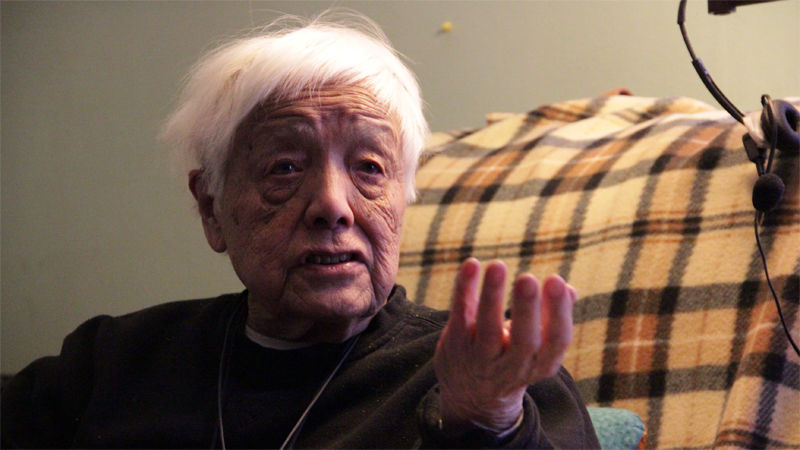Rooted in the Detroit community, Boggs founded the Detroit Summer, a multi-racial, intergenerational collective working to transform communities. As she told her Stanford audience in 2012, she is a big believer in transformational organizing. “Linking love and revolution is an idea whose time has come,” she said. At the heart of movement building is “the concept of two-sided transformation, of ourselves and our institutions.”
She encourages us all to reimagine community: “The social activists among us struggle to create actions that go beyond protest and negativity and build community because community is the most important thing that has been destroyed by the dominant culture.”
How might we reimagine our various Bay Area communities?
3. Rethink Work
It is not just about reimagining community, but work as well. In Detroit, and all over the country, there are very few jobs for people who want them, she told her Stanford audience. As a result, people think what we need are jobs. “They don’t realize that jobs have only existed for a few hundred years… before that, people didn’t work for pay.” Instead they worked for what the community needed. Boggs believes jobs have actually mangled us and “fragmented" us, making us into machines.
In a survey released by Bentley University in 2014, 77% of millennials said that flexible work hours are key to boosting productivity within their generation. Grace Lee Boggs' ideas go beyond that. She asked, “How are we going to re-imagine work, so that it enhances our humanity?”
4. Figure Out What Needs to Change
Grace Lee Boggs has lived through both World Wars, the Civil Rights Movement, the Vietnam War and everything in between, an experience that cemented a deep understanding of the necessity of change in her. “What made me start to recognize that change was necessary in this country was that I was born during the first World War, to Chinese immigrant parents. I was born female, and when I cried, the waiters in my father’s Chinese restaurant used to say, leave her on the hillside to die, she’s only a girl baby."
Her experiences growing up prompted her later activism and work on issues of race and poverty. In a statement released by the White House, Barack Obama said she understood "the importance of bringing about change and getting people involved to shape their own destiny."
5. Create Something New
Her book, The Next American Revolution, moves with ease, from art and activism to politics and creating sustainable communities. She writes, “We need artists to create new images that will liberate us from our preoccupations with constantly expanding production and consumption and open up space in our hearts and minds to imagine and create another America that will be viewed by the world as a beacon rather than as a danger.”
In her talk three years ago, she implored people to reimagine. I think she would do the same today: “I hope that each of you will come away reimagining revolution, reimagining education, reimagining family, reimagining neighborhoods, reimagining security, reimagining economics… It’s such a wonderful time for imagination and reimagination.”
Rest in power, Grace Lee Boggs.
If you need more Grace Lee Boggs in your life, check out the 2014 documentary, American Revolutionary: The Evolution of Grace Lee Boggs on Hulu.


